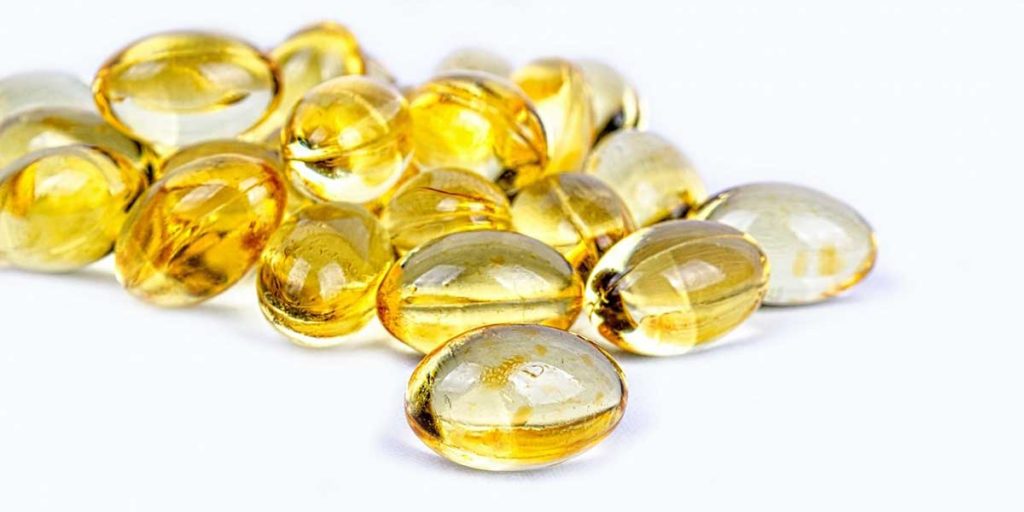Last Updated on November 18, 2023 by Cathy

Do you know what your vitamin D level is? If you’ve recently had it tested and the results came back as “normal” it may actually be too low.
Vitamin D is a fat-soluble vitamin that plays an important role. It’s actually a hormone, not a vitamin. You can get it from some food but it mostly comes from the sunlight on your skin. That is why it is also known as the sunshine vitamin.
Get a FREE “Sources of Vitamin D” at the bottom of this article.
What happens when vitamin D is low?
You need vitamin D to help absorb calcium and prevent calcium loss from the kidneys. It is also important for strong bones and teeth and other metabolic activities.
A severe deficiency causes rickets. It is also associated with many health conditions including:
- Autoimmune diseases
- Cancer
- Cardiovascular disease
- Diabetes (type 1 and type 2)
- High blood pressure
- Multiple sclerosis (MS)
- Osteopenia
- Osteoporosis
- Rickets
- Severe asthma in children
- Stroke
Plus, having a deficiency can lead to many other symptoms such as:
- Cognitive dysfunction (brain fog)
- Depression
- Fatigue
- Hair loss
- Inability to fight infections
- Joint pain
- Muscle pain or weakness
- Slow wound healing
- Susceptibility to injury
Today, people do not get enough sun exposure due to where they live, lifestyle habits, or how they eat. Which not only leads to disease but can exacerbate the severity of the disease.

Is vitamin D deficiency genetic?
Vitamin D controls the expression of more than 200 genes. The Vitamin D Receptor (VDR) gene encodes the nuclear hormone receptor for vitamin D3. – It allows the body to respond to vitamin D.
Having a mutated VDR gene prevents the VDR protein from functioning properly. A low or low “normal” result is often seen in people with MS.
Having a mutated VDR gene may interfere with the body’s ability to absorb adequate vitamin D levels. Meaning, some people with a mutated VDR gene may not respond as well to supplements as others.
This does not mean a person should start taking mega doses of supplements. Instead, it is important to work with a doctor to get tested and find your exact number.
How much vitamin D should I take daily?

Vitamin D deficiency is a known factor leading to MS. It is very important to get tested and start taking supplements. You can’t guess where your level is, you need to get tested.
Ask your doctor or visit an online provider such as Walk-In Labs. Do not accept a “normal” result, get the actual number.
My first test result came back normal but when I asked for the number it was at 34. This is not a normal number. Unfortunately, conventional medicine rates normal from 30-100. Your number needs to be at least 60 ng/mL or 150 nmol.
To convert ng/mL to nmol time it by 2.5. For example, ng/mL x 2.5 = nmol
Do not go over 100 ng/mL (250 nmol) without the supervision of a doctor who specializes in high doses.
You may also enjoy reading Is High Dose Vitamin D Right For You?
Vitamin D2 vs. Vitamin D3
Both forms are beneficial but, studies found D3 raises it for a longer period. You can find supplements with both forms but most come as D3.
Sources of Vitamin D2:
- Fortified foods
- Mushrooms (grown in UV light)
- Supplements

Sources of Vitamin D3:
There are two main forms, vitamin D2, and vitamin D3 depending on their food sources. Vitamin D2 comes from plant sources and fortified foods. Vitamin D3 comes from animal sources or exposure to sunlight.
- Dairy products
- Egg yolk
- Fortified foods
- Liver
- Oily fish such as salmon and fish oil
- Supplements
Vitamin D is fat-soluble it is best to take it with food.
Taking Vitamin D3 with K2
Both vitamin D and vitamin K2 support bone and muscle health, along with immune health. Vitamin D is necessary for calcium absorption. Vitamin K is important to direct calcium to the bones and away from the soft tissues.
There are different forms of vitamin K, so it is best to choose vitamin K7. Studies found that K7 has a more active effect. When shopping for a vitamin D3 or vitamin K7 supplement search for one from a reputable brand. I like to use Vitamin D/K2 from Thorne.
Magnesium
Magnesium helps transport vitamin D throughout the body. It converts it from an inactive form to an active form. The higher your dose the more magnesium you will need to take.
Many studies found people with MS often have a deficiency in magnesium. Magnesium helps with constipation and the spray helps with spasticity. Both are common symptoms of MS.
Foods such as avocados, bananas, and leafy greens are good sources of magnesium.
Taking a supplement will make sure you are getting enough magnesium. There are many different types of magnesium supplements including:
- Chloride
- Citrate
- Lactate
- Glycinate
- Malate
- Oxide
Knowing which magnesium to take can get confusing. Magnesium citrate helps with constipation, muscle cramps, spasms, and spasticity. However, magnesium citrate has a laxative effect which can give some people diarrhea.
On the other hand, magnesium glycinate is well tolerated by most people. Make sure to spread the dosage out throughout the day in between meals. Our body can only absorb small amounts at one time.
Don’t take glycinate with food since it accumulates water in the intestines. This can lead to looser stools and diarrhea. Choose whichever works for you, Ionic Magnesium is another good one to try. If you suffer from muscle cramps, spasms, or spasticity a magnesium spray works wonders.
Before taking any supplements talk to your doctor first. Supplements can interfere with certain medications.
Get Tested Today!
Lower vitamin D levels increase the risk of MS and increase disease activity. Get tested today and start taking a supplement to get your number up.

Sources of Vitamin D
Subscribe for free and I’ll send you the password to my secret library filled with many printables including Sources of Vitamin D.
Want to remember this health tip? Pin it to your Pinterest board!

Photo by Aditya Saxena on Unsplash
Resources:





